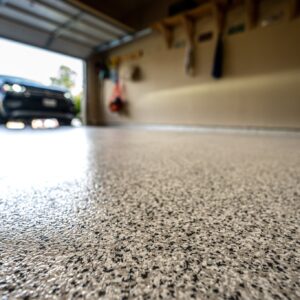Wrapping your car comes with a lot of advantages. For starters, it costs less to wrap a car compared to repainting one. Car wrap can also last up to ten years with proper maintenance.
The tricky part lies in taking proper care of your car wrap. While it’s not that different from maintaining typical car paint jobs, you do need to adjust some parts of the upkeep process.
Tips to Help You Clean Your Car Wrap
Don’t wash the wrap under the sun, use diluted car wash detergent, never use hot water, and dry the wrap with microfiber cloth are some expert tips when cleaning car wrap.
Avoid the Sun When Washing
Don’t wash your car wrap in direct sunlight. The heat and UV light from the sun can degrade and damage the car wrap of a vehicle. Similarly, never wash a vehicle with car wrap when it’s raining, as the chemicals and pollutants in the water can affect the wrap’s vinyl material.
It’s best to wash your wrapped vehicle someplace with a roof, like your garage.
Always Dilute Car Wash Detergent
Car wraps come in different materials, which means the way they to chemicals and cleaning solutions varies. Before washing your vehicle, it’s important to determine which car wash detergents are designed to work with the wrap you installed.
Manufacturers often suggest diluting detergent with cold water to make it safer to use on car wraps. You can also invest in soap that’s specifically designed for vehicles with car wraps.
Never Wash With Hot Water
While hot water is effective at removing grease, oil, and certain stains from your vehicle, it can destroy car wrap. The heat can damage the material and ruin the car wrap’s look and feel.
Dry Your Vehicle With Microfiber Cloth
Microfiber cloths and synthetic shammies are some of the best tools to use when it comes to drying a wrapped vehicle. Other towel types can scratch the car wrap because they’re too rough and abrasive for the material.
Shammies and microfiber towels absorb moisture quickly while keeping the film intact. Their highly absorbent properties ensure no water is left after wiping, preventing unsightly stains on the material.
Tips to Help You Maintain Your Car Wrap
To keep your car wrap in great condition, avoid going to car washes, never let stains dry, avoid parking outdoors, and avoid the heat.
Avoid Going to Car Washes
The chemicals and cleaning solutions used in automatic car washes aren’t designed with car wrap in mind. They might degrade and damage the vinyl. Similarly, the sheer force from high-pressure sprays and the abrasive material of the wash brushes can destroy the car wrap or make the edges peel off.
You’re better off washing your vehicle by hand. It’s strongly recommended to use soft cleaning materials, such as sponges, and soap water or watered-down car wash detergent.
Deal With Stains Immediately
Whenever you spot a stain on your vehicle’s car wrap, it’s important to wash it off immediately. Don’t let it get the chance to harden or dry or else it’ll become nearly impossible to remove.
Stains can permanently damage the wrap. Even if you manage to take the stain off, it’ll leave a nasty mark on the material.
Stains are typically left by water, oil, and grease. Road debris and things like bird droppings can also harden and stain the car wrap, becoming incredibly difficult to take off without damaging the vinyl underneath. This also applies to other unwanted fluids, like the chunky, pasty residue left by insects that crash into your vehicle mid-drive.
Avoid Parking Outdoors
It’s a good idea to keep a vehicle with car wrap parked inside a garage or indoor parking lot. Vinyl wrap is sensitive to atmospheric pollution and heat, all of which can damage or decolor vinyl wrap.
It’s also worth mentioning that water stains easily on a car wrap. It’s difficult enough to remove water stains from car glass — imagine trying to clean them off vinyl wrap. The water can also penetrate the protective film and destroy the adhesive binding it to the car.
Avoid the Heat
Though some vinyl wraps are capable of enduring heat (especially during summer) without any risk of damage, this isn’t the case for all car wraps. Most vinyl wraps aren’t heat-resistant and tend to peel or crack when subjected to prolonged heat exposure. It’s a good idea to park your vehicle someplace cool and shaded just in case.
Getting Your Hands on Cleaning Materials for Car Wrap
If you’re worried you won’t be able to find cleaning solutions, car shampoos, and other products, you can use CarParts.com to help you find the right materials for your vehicle. This way, you won’t have to worry about accidentally damaging your car wrap by using incompatible cleaning solutions ever again.
Each item in our catalog is carefully handpicked by a team of professionals, guaranteeing quality and long-lasting cleanliness. The best part? Our goods are sold at competitive prices, meaning you won’t have to break the bank to get your hands on what you want.
On top of that, our warehouses are strategically located all over the US. This means you can expect to receive any of your orders within two business days.
Don’t hold off on getting cleaning products for your vehicle if you want to keep it shiny and dirt-free. Browse our collection of auto parts now.
Any information provided on this Website is for informational purposes only and is not intended to replace consultation with a professional mechanic. The accuracy and timeliness of the information may change from the time of publication.




















